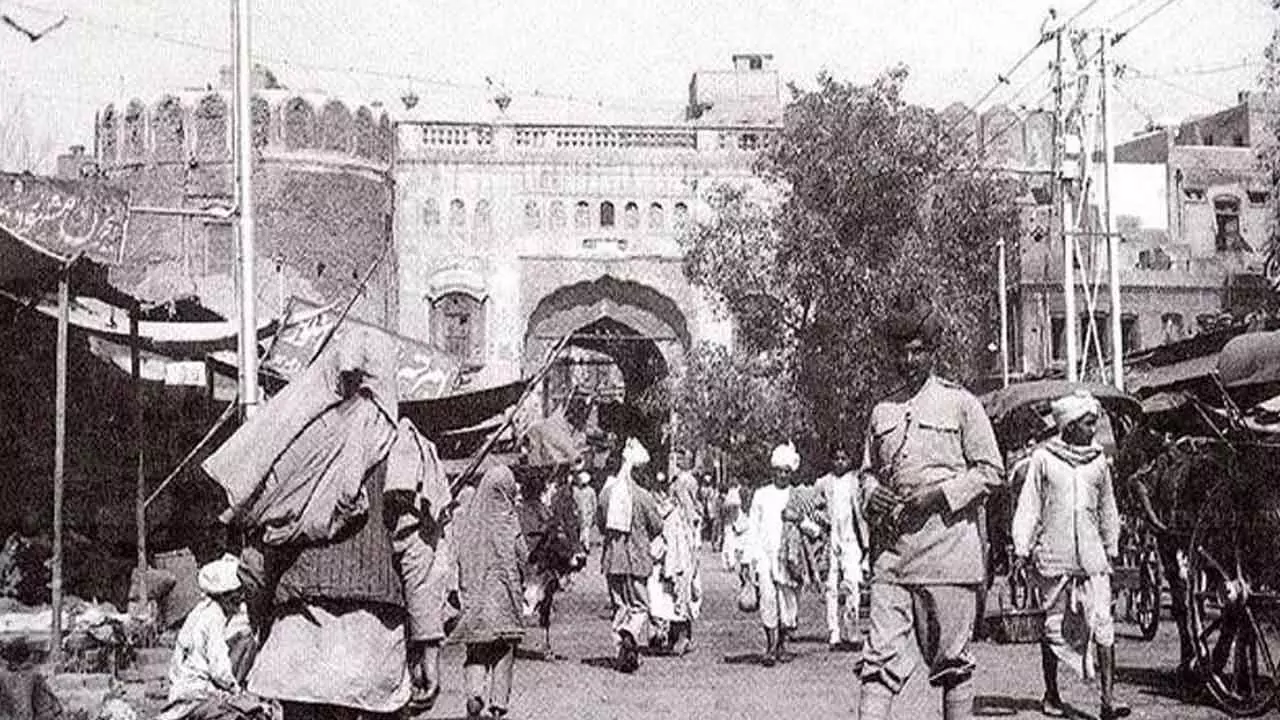I-Day tribute to Good Samaritans, who saved refugees and victims of partition horrors
Athletics great Milkha Singh was also among those who arrived in Delhi during partition
I-Day tribute to Good Samaritans, who saved refugees and victims of partition horrors

Dr. Vishumber Das, who, in 1922, established Vishumber free homeopathic dispensary in New Delhi, treated the poor for the rest of his life. There is a road named after him, Dr. Vishumber Das Marg
Actor-filmmaker Manoj Kumar, known for his patriotic films, had once said that before coming to Delhi with along with family in 1947, they were looted and beaten after the partition. They all, including his ailing younger brother, were treated at St. Stephen’s Hospital.
In those turbulent days, volunteers from the Delhi Brotherhood Society (DBS) were taking refugees arriving at the Old Delhi railway station to their St. Stephen’s Hospital for treatment or giving them shelter at the Brotherhood House campus in Civil Lines.
Due to the partition of the country, lakhs of Hindu and Sikh refugees had come to Delhi from Pakistan. At that time, they had nothing except the open sky in the new city. During that terrible period, workers from DBS and some Hindu and Sikh organizations were helping the refugees.
In fact, for Indian, every Independence Day brings with it two kinds of emotions. First, the country was freed from the clutches of the British. Therefore, a feeling of immense reverence arises in the mind for all those freedom fighters, whose sacrifices led to the departure of the whites from here. Second, the country also had to bear the brunt of the partition.
Lakhs of Hindu and Sikh refugees came to Delhi. Athletics great Milkha Singh was also among those who arrived at Delhi junction (old Delhi railway station). Milkha Singh’s parents were murdered.
Thankfully, there were beacons of hope in the form of Good Samaritans. They hid Milkha in the ladies’ compartment of the train. He was separated from his sister. But providence reunited them later.
Even though it was the capital of the country, Delhi was a small city compared to what it is today.
At that time, Dr. Ruth Rosewier, the head of St. Stephen’s Hospital, was leading the treatment of injured and sick refugees. Dr. Ruth was a British citizen. This hospital was opened in 1885 by the Delhi Brotherhood Society, which also established St. Stephen’s College in Delhi and St. Stephen’s Cambridge School at Sonepat.
Dr. N. C. Joshi was engaged in serving the people of Delhi during that crisis period in Karol Bagh. When communal riots broke out in the area during 1947, Dr. Joshi was also a victim. On the other hand, at Irwin Hospital (now Lok Nayak Jayaprakash Narayan Hospital), the pain of patients was being relieved by the medical superintendent, Dr. Banwari Lal, along with his colleagues like Kabul Chand Balmiki.
DBS workers were also taking many patients to Lady Hardinge Medical Hospital, the only known hospital in the area. The patients were treated under the supervision of Dr. K.J. McDermett (1946-1948) and Dr. O.P. Bali (1948-1950), the principal-directors of the hospital.
Until 1947, the students from here used to go to Lahore for writing their annual exams at King Edward Medical College, which was part of Punjab University.
Dr. Vishumber Das, who, in 1922, established Vishumber free homeopathic dispensary in New Delhi, treated the poor for the rest of his life. There is a road named after him, Dr. Vishumber Das Marg, which was known as Allenby Road before 1965.
You will still find many refugee families who will tell you that they would have been nowhere without the support of Father Ian Weathrall and his colleagues associated with DBS. He worked for the rehabilitation of refugees, who were provided a roof and food at Brotherhood House, which was established in 1925. Fr. Weathrall was in the British Army and served Punjab Regiment. His life changed after the end of World War II. He took a degree in theology from Cambridge University. He stayed in London for some time and then came to India.
“He devoted the rest of his life working for the rights of the poor, downtrodden and the marginalized. The influence of Mahatma Gandhi was clearly visible on him. He was 91 when he passed away in 2013,” recalls Father Solomon George, an old colleague of Father Ian Weathrall.
When India is celebrating its Independence Day, we should remember all those unsung heroes, who lent a shoulder and fresh lease of life to millions of refugees.
(The author is Delhi-based senior journalist and writer. He is author of Gandhi's Delhi which has brought to the forth many hidden facts about Mahatma Gandhi)

